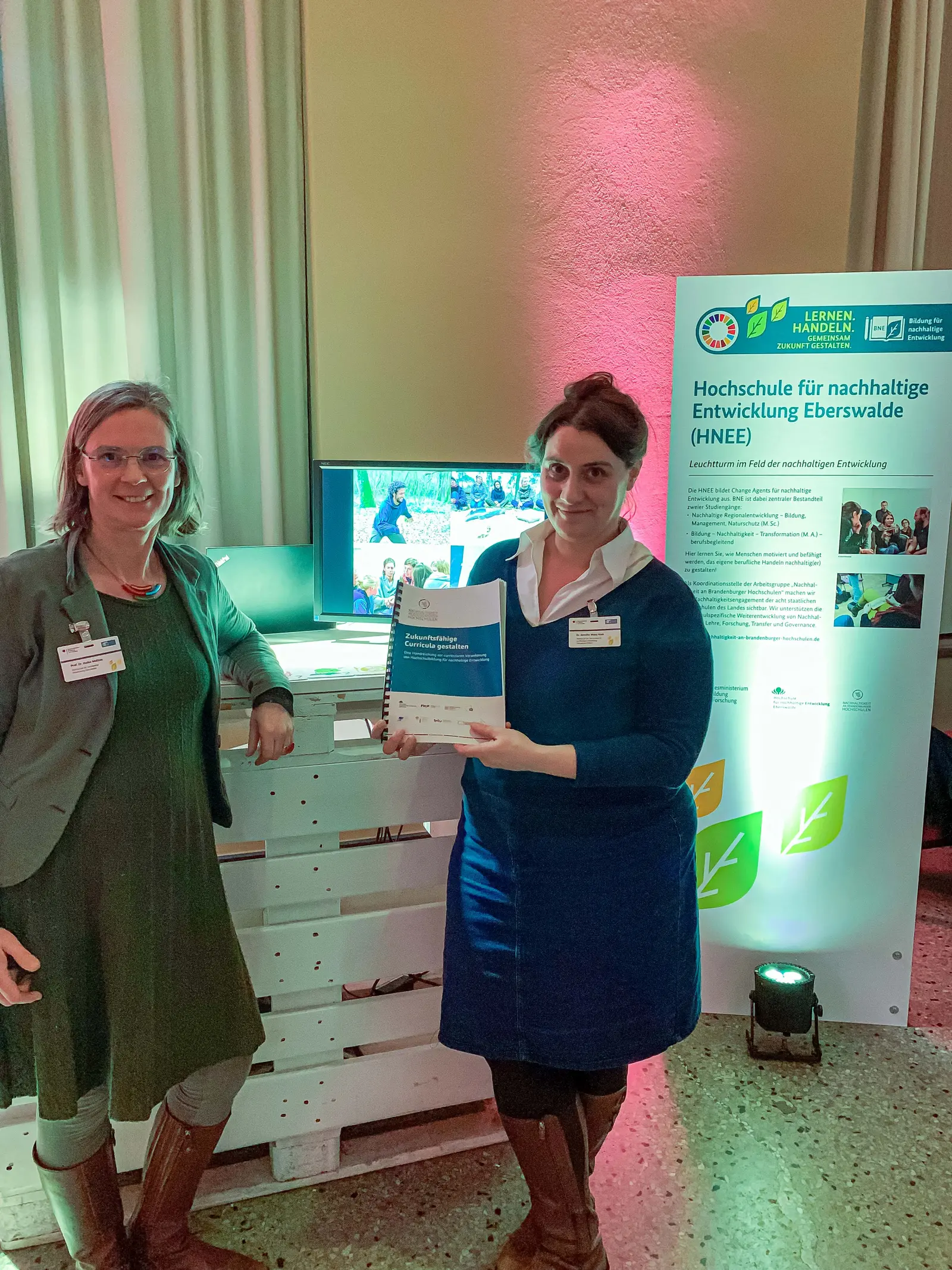Designing sustainable curricula - Handout on higher education for sustainable development
The interactive handout "Designing sustainable curricula" from the working group "Nachhaltigkeit an Brandenburger Hochschulen" has been published. The aim of the working group is to anchor higher education for sustainable development (HBNE) in the minds of all university members in the long term.

For the state-wide implementation of higher education for sustainable development (HBNE), it is of central importance to integrate HBNE into the university-relevant framework documents and curricula so that sustainability can be realised in teaching.
The working group has published a new handout on this topic:
Molitor, H.; Krah, J.; Reimann, J.; Bellina, L.; Bruns, A. (2022): Designing sustainable curricula - A handout on the curricular anchoring of higher education for sustainable development. Working Group for Sustainability at Brandenburg Universities (ed.), Eberswalde.
This handout brings together further materials and literature on the curricular anchoring of higher education for sustainable development (ESD). The focus is on
1. anchoring sustainability thematically and in terms of content,
2. anchoring ESD didactically and methodically and
3. on competence-oriented ESD in the module descriptions of the study programmes.
The handout is aimed at teachers of all disciplines and multipliers who are committed to sustainable development at their university and want to embed it in university teaching.
To strengthen higher education for sustainable development, the working group "Nachhaltigkeit an Brandenburger Hochschulen" organises cross-university activities such as the anchoring of sustainability in mission statements and curricula as well as the development of further training courses.
The working group's vision is to develop Brandenburg as a centre for diverse sustainability studies. Through the state-wide implementation of the Brandenburg University Agreements 2019-23, the working group also contributes to the implementation of Goal 4.1 of the Brandenburg Sustainability Strategy.
The working group is made up of representatives from the eight state universities in Brandenburg and is supported by the "Sustainability at Brandenburg Universities" coordination office through accompanying research and organisational work. Organisationally, the coordination office is located in the Vice President's Office for Studies and Teaching at HNE Eberswalde.
"Education for Sustainable Development (ESD) enables people to think and act sustainably, i.e. to understand the effects of their own actions on the local environment and on people in other parts of the world, to imagine the effects on future generations and to be able to make responsible decisions as a result. ESD prepares people to actively deal with the problems that threaten the sustainable development of our planet and to find solutions to these problems together.
ESD enables people to consider the ecological, social, economic and cultural aspects of the challenges of our time in their entirety and to find ways to bring about change, taking into account dependencies, conflicting goals and trade-offs. ESD therefore means "empowerment" (the promotion of the ability) to actively participate as a change agent in the transformation to more socially just and ecologically integrated societies." Guideline Teaching HochN, p.24 (2020)
Note on image material
The photos available here may be used in the context of reporting. Please note the copyright notice © HNEE / private